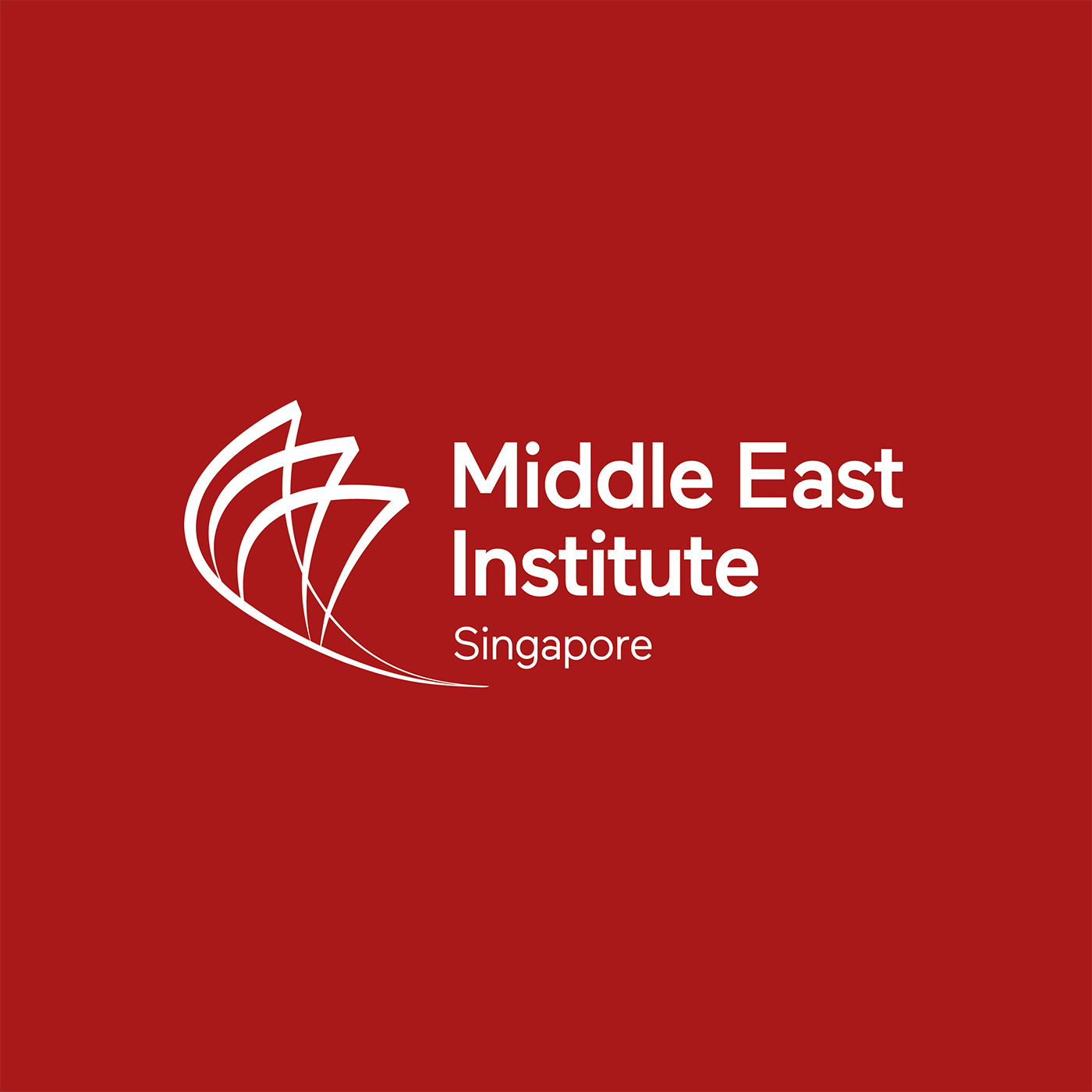Episodes
![[Boots Off the Ground: Security in Transition in the Middle East and Beyond] Episode 11: Future of Chinese PSC’s in Central Asia](https://pbcdn1.podbean.com/imglogo/ep-logo/pbblog4563756/BOTG_LOGO9170s_300x300.jpg)
Thursday Jan 28, 2021
Thursday Jan 28, 2021
This podcast series is presented by Dr Alessandro Arduino, principal research fellow, and Dr Ameem Lutfi, research fellow, at Middle East Institute, National University of Singapore.
![[MEI Salon Series] Resistance, Rebellion & Revolution | A Libyan Artist in Exile — Hasan ‘Alsatoor’ Dhaimish (1955–2016)](https://pbcdn1.podbean.com/imglogo/ep-logo/pbblog4563756/Video_Title_Template_oil_event_title-minafj3w_300x300.png)
Friday Feb 19, 2021
Friday Feb 19, 2021
In 2011, almost 42 years of dictatorial rule came crashing down on Libya’s Muammar el Qaddafi, as revolution swept across the country. Alsatoor (The Cleaver), a Libyan satirist in exile in the UK, had been criticising the regime for decades through his cartoons. Once Qaddafi fell, his work didn’t stop there. Libya tumbled into chaos and civil war, while Alsatoor pushed on for political and social change until he passed away in 2016.
Coinciding with the Libyan revolution’s 10th anniversary, this event is a reflection of the life and works of Hasan ‘Alsatoor’ Dhaimish (1955–2016), and an exploration of contemporary Libyan culture and history.
Through satire and art spanning from the 1980s to 2016, attendees will experience Libya’s transition from autocracy to liberation and civil war through Alastoor’s work. Hosted by the artist’s son, Mr Sherif Dhaimish, the talk will be aired from London and will be apart of the forthcoming exhibition, “Resistance, Rebellion & Revolution — A Libyan Artist in Exile”, Hoxton 253, and will feature some of the show’s video installations and artworks.
Mr Dhaimish will delve into his father’s life in exile and his eclectic body of work — from depictions of pre-Qaddafi Libya, to satirical cartoons, and paintings inspired by blues and jazz — while offering an insight to Libya’s modern history.
To conclude, Mr Dhaimish will discuss the artist’s legacy, and introduce a new wave of Libyan art that celebrates and preserves culture.
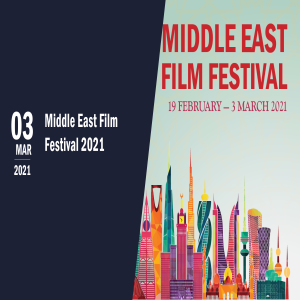
Monday Mar 01, 2021
Middle East Film Festival 2021 | Q&A with Mehdi M Barsaoui
Monday Mar 01, 2021
Monday Mar 01, 2021
The Middle East Film Festival 2021 taking place from 19 February to 3 March 2021 at the Shaw KinoLounge, is presented by the Middle East Institute at the National University of Singapore and supported by the Singapore Film Society.
Director Foreword
What is a film? A story. An event. A set of moving images. The sound of a train. An eavesdropped conversation. Recorded on camera. Screened in a cinema. Shown on television. Streamed via the Internet.
Movies are the window into our humanity. And they are a respite, though brief, from the challenges of navigating an increasingly complex world.
Each story told, each event recalled, allows us into a world that might mirror the one we live in or looks nothing like our own everyday. And yet something speaks to us through these films. Language and dress may differ but hopes and dreams seem somehow familiar. We are placed in situations we may never have to face. As the stories unfold, we find ourselves rooting for the main characters, willing them to find the solutions, the success or the peace that they seek.
The films we have chosen for this year’s Middle East Film Festival may sometimes be confronting, set against backdrops of family and expectation, harsh landscape, or tumultuous social change. But they each tell of the resilience of spirit, the unbowed soul. And unlike the grand scale, blockbuster films of Hollywood or even Bollywood, those from the Middle East focus more closely on individual struggles and society, giving us a more intimate look into their everyday and how they must navigate these hurdles.
We hope you enjoy the films that the Middle East Institute at NUS has curated this year in partnership with the Singapore Film Society. Thank you again for joining us.
![[Boots Off the Ground: Security in Transition in the Middle East and Beyond] Episode 12: Kidnap and Ransom Insurance - Managing Risk in the Cyber and Maritime Space](https://pbcdn1.podbean.com/imglogo/ep-logo/pbblog4563756/BOTG_LOGO_aat_Dec_20207ecu4_300x300.jpg)
Wednesday Mar 10, 2021
Wednesday Mar 10, 2021
In this episode, Mr Ashley Coles, Director of Security Risks, Price Forbes & Mr Brett Davey, Founder and Managing Director of Insurance Consultants & Experts, I.C.E, Singapore look at the insurance sector – from kidnap and ransom risk management techniques to anti-piracy and cyber security crisis management.
This podcast series is presented by Dr Alessandro Arduino, Principal Research Fellow, and Dr Ameem Lutfi, Research Fellow, at Middle East Institute, National University of Singapore.
![[Boots Off the Ground: Security in Transition in the Middle East and Beyond] Episode 13: Humanitarian Aid Agencies Risk Management](https://pbcdn1.podbean.com/imglogo/ep-logo/pbblog4563756/BOTG_LOGO_aat_Dec_20207ecu4_300x300.jpg)
Monday Mar 29, 2021
Monday Mar 29, 2021
In this episode, Mr Jason O’Connor, Deputy Director (North America), GISF – Global Interagency Security Forum, speaks about protecting people working in the development and humanitarian response sectors (in challenging environments) from physical violence and cyber risks. He also elaborates on how to promote proper security risk management practices and improving security of aid workers.
This podcast series is presented by Dr Alessandro Arduino, Principal Research Fellow and Dr Ameem Lutfi, Research Fellow, at the Middle East Institute, National University of Singapore.
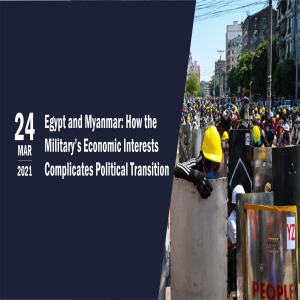
Tuesday Mar 30, 2021
Tuesday Mar 30, 2021
This event was organised by MEI’s Political Economy Research Cluster on 24 March 2021. Click on the following link for more details: https://mei.nus.edu.sg/event/egypt-and-myanmar-how-the-militarys-economic-interests-complicates-political-transition/
Abstracts
Egypt and Turkey: The Military’s Economic Stake and the Path to Political Transition by Dr Yezid Sayigh
Comparison between the political and economic roles of the National Armed Forces in Turkey and Egypt allows three principal insights. First, the degree to which the military is committed to a dominant economic model has a major bearing on the form and purpose of its own economic activity. It follows that the lack of a clear vision for the path to capitalist development, or an enduring legacy of non-capitalist path to development, allows opportunistic economic activity and raises the military’s stake in holding on to state power.
Second, the retreat of the military role in national politics and government is heavily contingent on social transformations resulting from economic modes that generate significant social classes and private sectors with a higher relative degree of autonomy from the state. The converse is also true – the military may tighten its grip where economic mode and state power impede social transformation of this kind and instead, generate concentration of wealth and widen income disparity.
Lastly, the preceding two dimensions are reflected in the political domain: in a multi-party system, the military tends to act as a balancer and arbiter whereas in a one or non-party system, the military tends to entrench its role as a regime pillar and further concentrate all forms of power in the state.
The Military Coup in Myanmar: Taking Care of Business by Dr Htwe Htwe Thein
The coup in Myanmar is partly about protecting the military elite’s economic interests. These interests are vested in two vast military-owned conglomerates – Myanmar Economic Holdings Limited (MEHL) and Myanmar Economic Corporation (MEC). The spectre of the democratically elected National League for Democracy gradually diluting the military’s political power also challenged its economic power. The military’s conglomerates were established in 1988 when the armed forces were in full control of Myanmar. As market players, they benefitted from Myanmar’s embrace of international trade with Asian investors who, unlike their Western counterparts, did not adhere to US sanctions imposed in 1997 and were only lifted after the political transition in 2011.
Myanmar’s isolation allowed the military to strengthen the conglomerates’ grip on the economy and enrich senior military personnel by controlling licensing, issuing concessions and developing partnerships with Asian investors and emerging domestic private businesses that were dependent on the armed forces. The military maintained its economic interests and partnerships over the last decade despite the transition from military to quasi-civilian rule in 2011 and the subsequent shift into-quasi democratic rule.
That is the primary reason why the Civil Disobedience Movement, since the coup on 1 February 2021, has emphasised a boycott of products and services provided by the military’s conglomerates as well as domestic and international businesses that are part of the armed forces’ nexus. The focus on the nexus highlights the need for future transition to involve both political and economic change and the international community can contribute to that by designing sanctions accordingly.
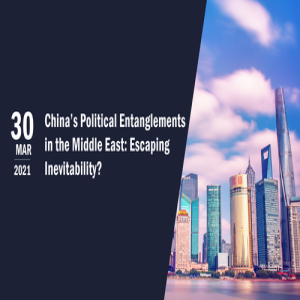
Wednesday Mar 31, 2021
China’s Political Entanglements in the Middle East: Escaping Inevitability?
Wednesday Mar 31, 2021
Wednesday Mar 31, 2021
Beyond significantly enhancing its economic footprint, China has forged comprehensive strategic partnerships with key Middle Eastern states including Saudi Arabia, the United Arab Emirates, Iran and Egypt. China hopes that its economic clout and efforts to be the region’s technological juggernaut as part of its Belt and Road Initiative and Digital Silk Road will shield it from being consumed by the myriad of conflicts in the Middle East. However, whether this is sufficient to protect from China’s mushrooming interests in the region at a time of strategic rivalry with the United States- which is seeking to reconfigure its commitments in the Middle East- is yet to be known. The Middle East Institute at the National University of Singapore hosted a panel of experts to explore China’s options.
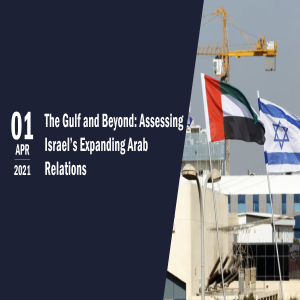
Friday Apr 02, 2021
The Gulf and Beyond: Assessing Israel’s Expanding Arab Relations
Friday Apr 02, 2021
Friday Apr 02, 2021
In the last six months, a flurry of Arab states, including the UAE, Bahrain, Sudan and Morocco, established diplomatic relations with Israel or announced their intention to do so. The “honeymoon period” for Israel, the UAE, and Bahrain is coming to an end. Sudan and Morocco have yet to finalise details of their recognition of the Jewish state. Israeli and Emiratis basked in the warmth of the receptions that they received in each other’s countries and the prospects of a blossoming security, commercial and trade relationship.
Yet, despite a series of business deals and cooperation agreements in areas such as aviation, technology, agriculture and education, not all went according to expectations. Israel suspended the purchase of one of its most storied and controversial football clubs because of questions about the solvency of the Emirati buyer. An Israeli alliance of high-powered security and technology companies lost a bid for an Emirati cybersecurity center and Israeli Prime Minister Benyamin Netanyahu cancelled visits to the UAE and Bahrain. In this webinar, a panel of prominent experts will assess the current state of affairs, as well as the prospects of more states – not limited to the Gulf region – in recognising the Jewish state.
![[Regional Forum] Central Asia-ASEAN: Opportunities in Trade, Investment and Education](https://pbcdn1.podbean.com/imglogo/ep-logo/pbblog4563756/rsz_1rsz_video_title_template_oil_event_title_300x300.png)
Wednesday Apr 14, 2021
[Regional Forum] Central Asia-ASEAN: Opportunities in Trade, Investment and Education
Wednesday Apr 14, 2021
Wednesday Apr 14, 2021
The Lee Kuan Yew School of Public Policy (LKYSPP) Central Asia and Caucasus Alumni Chapter and the Middle East Institute (NUS) hosted an online forum to discuss opportunities and challenges for cooperation between Central Asian and ASEAN countries in economic, financial and educational ecosystems. Due to the global pandemic crisis, countries in Central and Southeast Asia are in search for diversification of economic partnerships. Understanding the opportunities in these regions could support cooperation in foreign direct investments, free trade agreements and higher and executive education initiatives.
Yerlan Kubashev, Counsellor of the Embassy of Kazakhstan in Singapore, was the Keynote Speaker, and the event was moderated by Inkar Aitkuzhina, LKYSPP Alumna, Analyst at McKinsey & Company.
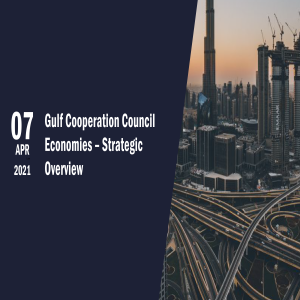
Monday Apr 19, 2021
Gulf Cooperation Council Economies – Strategic Overview
Monday Apr 19, 2021
Monday Apr 19, 2021
Gulf Cooperation Council (GCC) economies still depend heavily on oil and gas for their income, budgets and social peace. They have all, to varying degrees, embarked on a journey of diversification over the last few years to reduce such dependency and build the foundation for their economies in a post-oil world. Several countries’ visions (SAUDI 2030, UAE 2021) have been created to frame this transformation process and define the priorities for each country. Diversifying the economy and getting ready to compete in a knowledge-driven economy is of paramount importance for these countries as forces of energy transition and development of renewable technologies, in addition to increased environmental conscience, continue to pressure the oil and gas industry.
In this session, the following will be covered:
- Overview of the GCC economies
- Countries’ visions and diversification frameworks
- Current trends and impact on the future of the GCC economies
- Key sectors and opportunities

